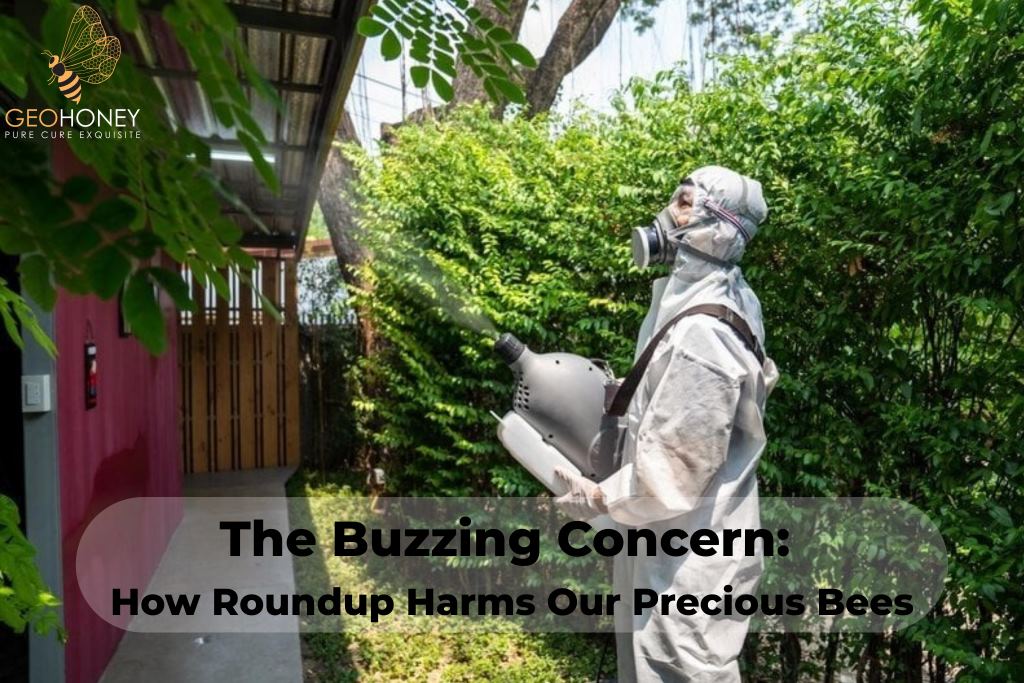- Tokyo: 16:02
- Singapore: 15:02
- Dubai: 11:02
- London: 07:02
- New York: 02:02
The Buzzing Concern: How Roundup Harms Our Precious Bees

Within the intricate dance of nature, bees hold a vital role, diligently pollinating crops and maintaining the delicate balance of ecosystems. Yet, this harmony faces a threat due to the prevalent use of Roundup, a pervasive herbicide leveraging glyphosate as its active component.
Amid their crucial pollination endeavors, bees encounter the detrimental impact of Roundup. Extensive scientific studies reveal distressing connections, linking glyphosate exposure to significant challenges confronting these invaluable pollinators. Navigation disruption, crucial for their foraging journeys, emerges as a concerning outcome. Bees exposed to Roundup may find themselves disoriented, struggling to locate essential food sources vital for their survival.
The repercussions of Roundup extend beyond immediate concerns, raising serious questions about the long-term well-being and resilience of bee populations. This threat poses a jeopardy to the intricate network of life they support. As guardians of our planet, it becomes our duty to acknowledge not just the impacts of Roundup but also the potential legal implications, especially in light of Roundup lawsuits, on these indispensable pollinators.
Sharing his perspective on this pressing issue, Mr. Basem Barry, CEO of Geohoney, a globally recognized leader in honey supply renowned for its commitment to organic and sustainable api culture practices, emphasizes the urgency. "At Geohoney, we prioritize the welfare of bees and their ecosystems. The usage of Roundup presents a substantial threat to our bee populations and the environment. We strongly advocate for sustainable agricultural practices that protect the invaluable role bees play in our world."
This plight of our cherished bees serves as a poignant reminder of the delicate interdependence within nature's tapestry. To secure the future of these incredible creatures, we must champion sustainable methods that prioritize the well-being of our buzzing allies. It's a call to action to nurture the custodians of our ecosystems and uphold the sweet essence of life they tirelessly contribute to.
Adapted and expanded content based on insights from www.consumernotice.org/legal/roundup-lawsuits/




Roundup is already harmful to people, how much more to our great pollinators. Bees are attracted to nectar containing common pesticides, which could increase their chances of exposure to high pesticide levels, putting them at risk.